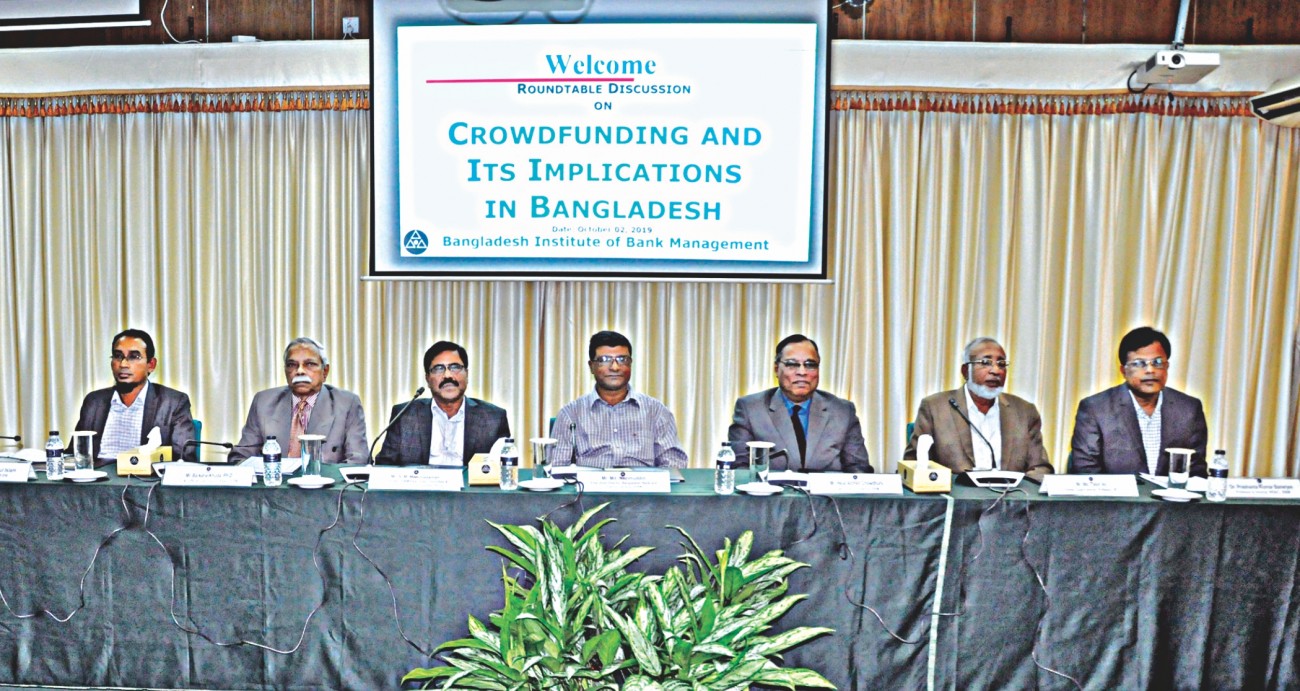Trust key to crowdfunding: BB deputy governor

Building trust is key to successful crowdfunding initiatives, a deputy governor of Bangladesh Bank said yesterday.
“Crowdfunding is playing a more and more effective role in solving the financing problems for startups,” SM Moniruzzaman told a roundtable on crowdfunding and its implications in Bangladesh. The Bangladesh Institute of Bank Management (BIBM) organised the event, chaired by Executive Director Md Nazimuddin, on its premises.
Crowdfunding is an alternative funding method in which a project or venture is financed by raising small amounts of money from a large number of people, typically via the internet. There exist four crowdfunding business models based on donation, reward, equity and lending.
Dhaka Ahsania Mission, Kidney Foundation Hospital and Anjuman Mufidul Islam are some bright examples of donation-based crowdfunding in Bangladesh.
There are also risks in crowdfunding, said the deputy governor. “We cannot ignore the risks and problems of crowdfunding. Crowdfunding portals and platforms are equally vulnerable to attacks from hackers and cybercriminals,” he noted.
Moniruzzaman said presently there are no regulations about crowdfunding in Bangladesh. However, he said the event is a timely initiative to create awareness among the citizens of the country.
Prof Barkat-e-Khuda of the BIBM said crowdfunding was a very old concept for the informal sector or the individual level. “But we can incorporate the idea into the formal sector,” he said.
Associate Prof Mohammad Tazul Islam presented a paper on the topic. His co-authors were Associate Prof Mohammed Atul Chandra Pandit, Lecturer Rahat Banu and Associate Prof Bishnu Kumar Adhikary of Doshisha University of Japan.
Prof Prashanta Kumar Banerjee of the BIBM delivered the welcome speech and Supernumerary Prof Helal Ahmed Chowdhury and Yasin Ali, a former supernumerary professor, also spoke.
Senior executives from banks and non-banks financial institutions, academicians and the BIBM’s faculty members took part in the discussion.
